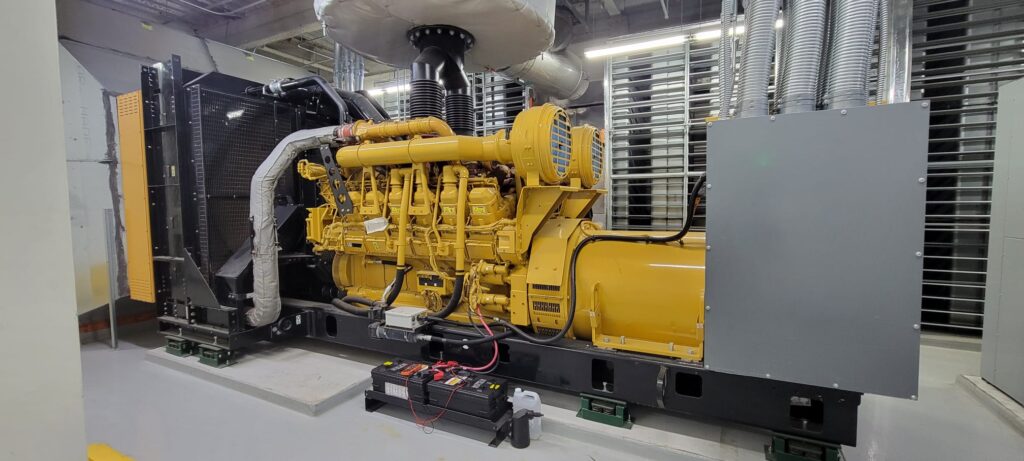5 Reasons To Keep Your Generator Clean: Effective Generator Care
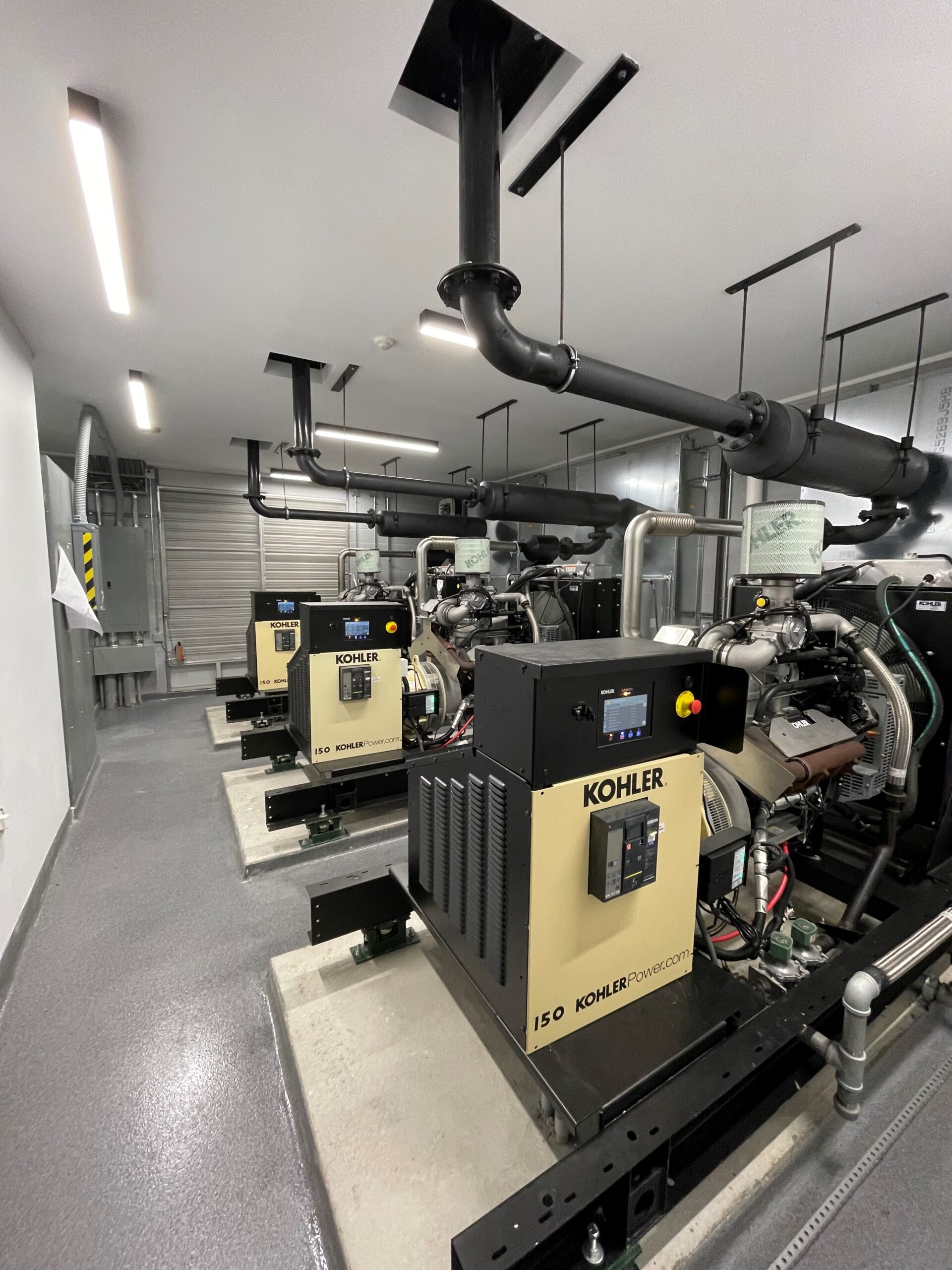
Generators are essential for providing backup power during unexpected outages, keeping critical systems operational and businesses running smoothly. Whether used in healthcare, manufacturing, special events, or other industries, generators must perform reliably at all times. While preventive maintenance often focuses on tasks like oil changes, fluid sampling, and load testing, keeping your generator clean plays an equally critical role. Let’s explore why regular cleaning should be part of your generator maintenance plan and the potential risks of neglecting this task.
Table of Contents
Improved Performance and Efficiency
A generator that’s covered in dirt, debris, and dust is at greater risk of overheating, due to reduced cooling efficiency. However, it’s not just the generator’s exterior that needs attention—air intakes and exhaust systems can easily become blocked, forcing the engine to work harder and diminishing its overall performance.
By regularly cleaning the generator and ensuring it is free of obstructions, you enable it to operate at peak efficiency. This can reduce wear on the engine, improve fuel economy, and lower operational costs over time.
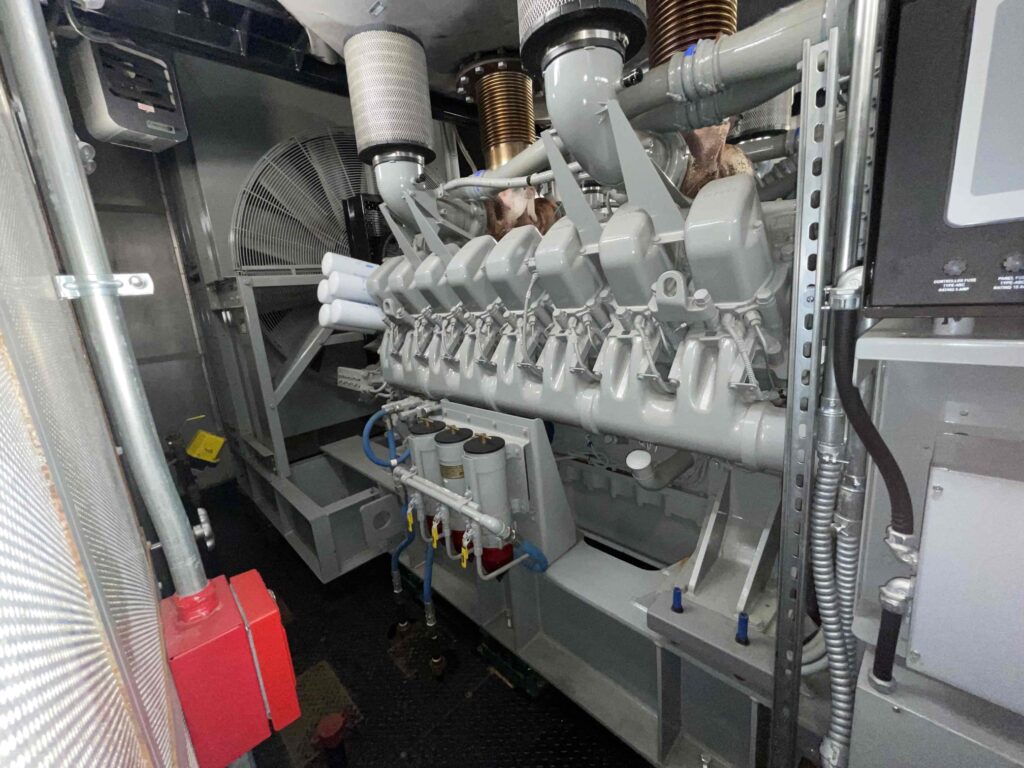
Keeping the Area Around the Generator Free of Debris
Beyond cleaning the generator itself, it’s essential to keep the surrounding area clear. Accumulated debris like leaves, grass, branches, snow, or trash can obstruct airflow to the generator’s cooling system, increasing the risk of overheating. Additionally, debris can become a fire hazard, particularly for diesel and natural gas-powered generators that operate at high temperatures.
Ensure that the generator’s enclosure and the area around it are maintained, especially after storms or during seasons when leaves and vegetation can pile up. Regularly trimming overgrown vegetation and removing any flammable materials helps prevent fire hazards and ensures optimal airflow.
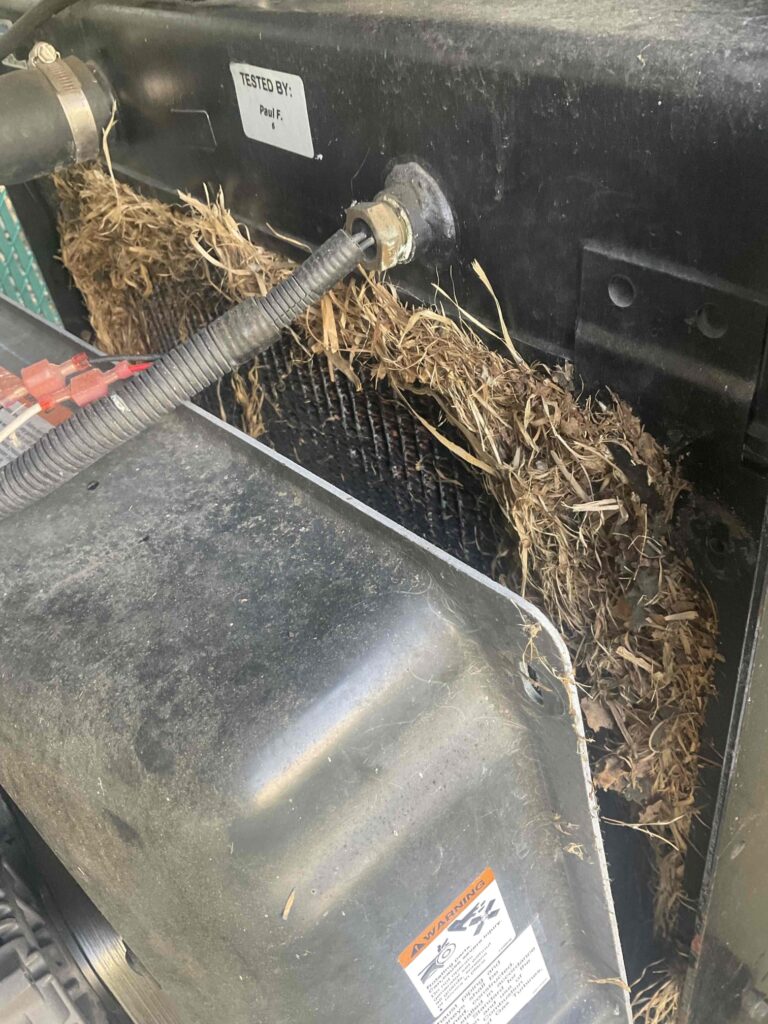
Rodent and Pest Prevention
Generators, particularly those housed outdoors or in enclosures, are susceptible to becoming homes for rodents, insects, and other pests. These creatures can cause extensive damage by chewing through wires, nesting in ventilation systems, or clogging air filters with their nests. In some cases, rodents can even cause electrical shorts by gnawing on cables. Additionally, nesting materials in contact with a hot generator can increase the likelihood of a fire.
To avoid such issues, it’s important to implement preventive measures like sealing gaps in the generator housing, installing rodent deterrents, and conducting regular inspections. Keeping the area clean and free of food sources or hiding spots will make it less appealing for pests to take up residence in or around your generator.
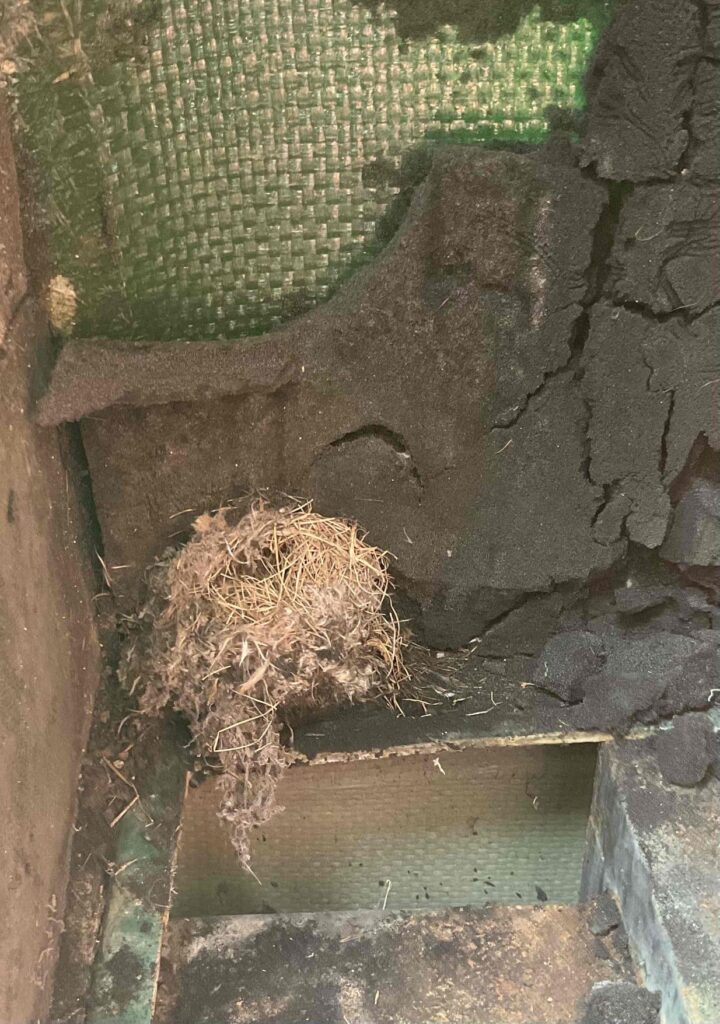
Extended Equipment Life
The cleaner your generator is, both inside and out, the longer it will likely last. Dust, dirt, and grime can trap moisture, potentially damaging sensitive components and accelerating the formation of rust. When debris and pests interfere with the generator’s ventilation or wiring, it can cause malfunctions or catastrophic failure.
By maintaining a clean generator and surrounding environment, you’ll not only prevent unnecessary damage but also extend the equipment’s overall lifespan. This maximizes your return on investment and minimizes unexpected repair costs.
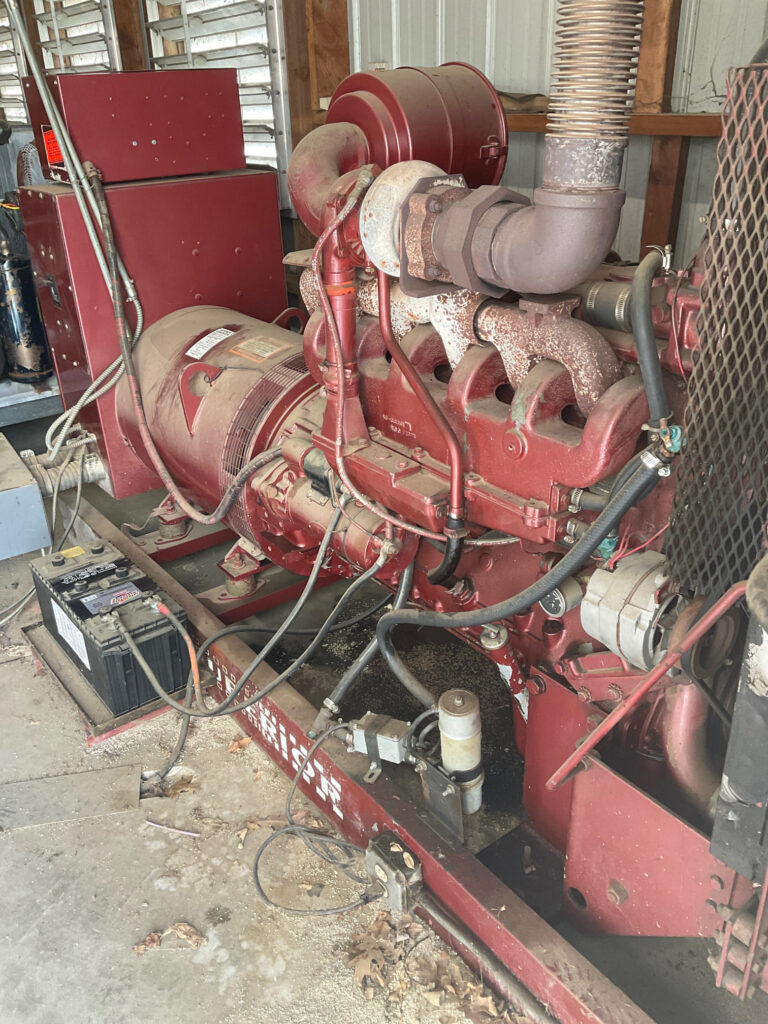
Early Detection of Problems
Keeping your generator clean makes it easier to identify new leaks, worn wiring, wet stacking, or corrosion easier, allowing you to catch potential issues before they become major problems. These problems can be addressed early, saving you from costly repairs or extended downtime in the future.
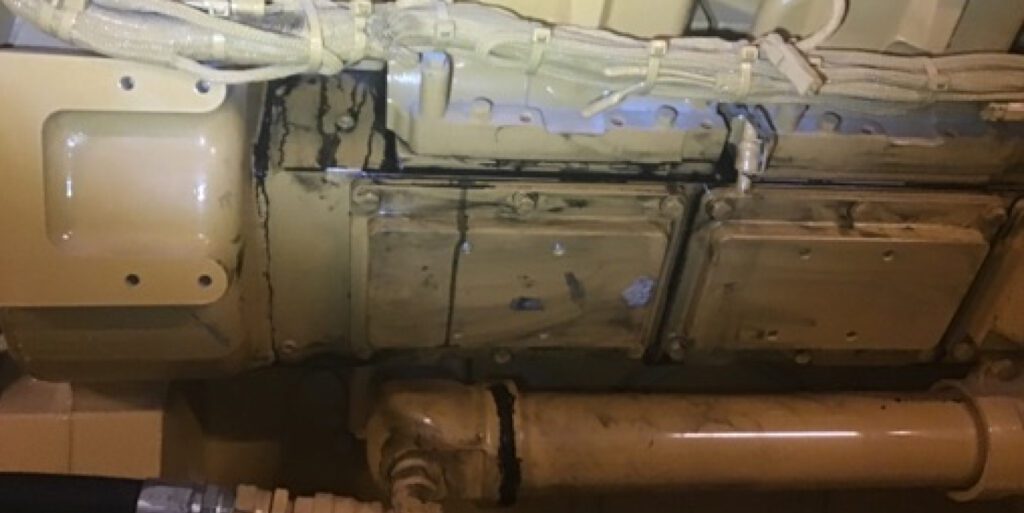
Best Practices for Keeping Your Generator and Its Environment Clean
- Regular Cleaning Schedule: Create a cleaning schedule based on the generator’s usage and operating environment. Outdoor generators, especially those near wooded or grassy areas, will require more frequent cleaning and inspections.
- Debris-Free Surroundings: Ensure a clear area around the generator. Keep it free of leaves, branches, grass clippings, snow, and other potential obstructions that could affect airflow or pose a fire risk.
- Rodent Prevention: Seal any gaps in the generator housing and place deterrents, if necessary. Regularly inspect for signs of rodent or pest activity, such as droppings or chewed wires.
- Proper Cleaning Tools: Use appropriate cleaning methods, such as compressed air for dust and gentle cleaning agents for grime. Avoid high-pressure water around sensitive electrical components.
- Inspection During Cleaning: Cleanings should also involve inspecting the generator for potential issues like oil leaks, frayed wiring, or other damage.
- Professional Maintenance: Schedule routine maintenance with a certified generator technician who can clean and inspect the generator thoroughly, ensuring optimal performance and safety.
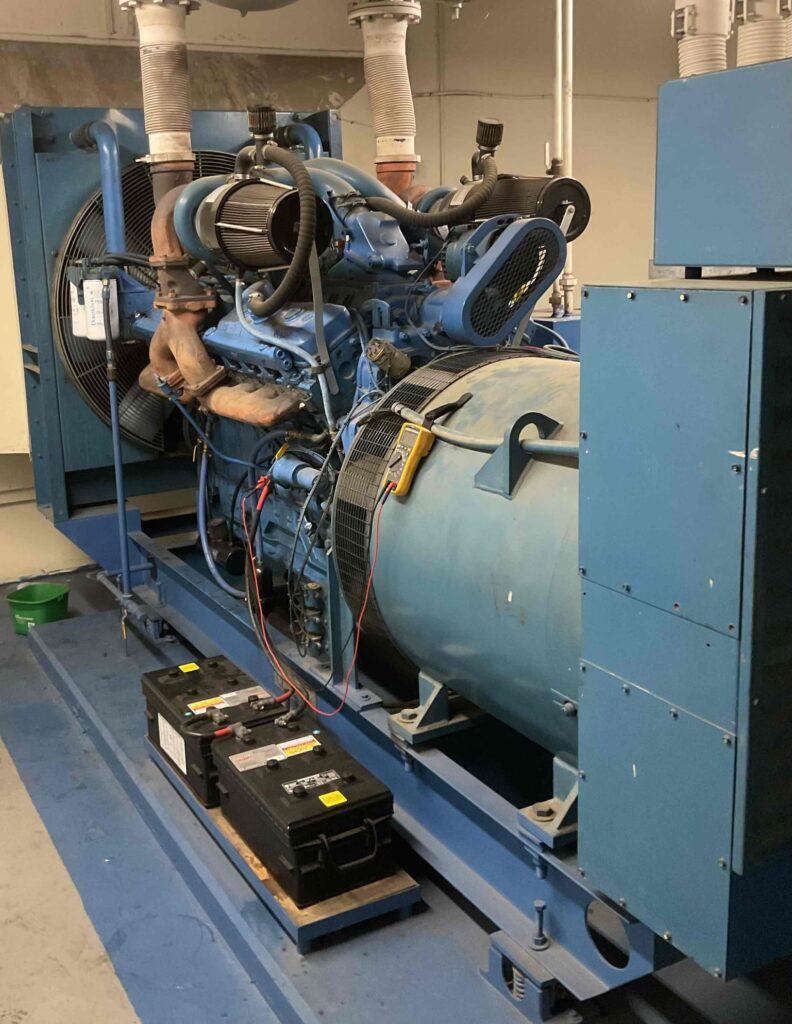
Conclusion
A clean and debris-free generator is crucial for ensuring reliable performance, extending equipment life, and minimizing safety risks like fires or electrical shorts from rodent damage. Incorporating regular cleaning and pest prevention into your generator maintenance plan will help keep it running efficiently and ready to provide backup power whenever needed.
By proactively maintaining a clean generator and its surroundings, you protect your investment and guarantee that your critical systems will stay operational during an outage.
Need help maintaining your generator? Weld Power Generator offers comprehensive maintenance plans. Contact us today to schedule a service and keep your equipment in top shape!
